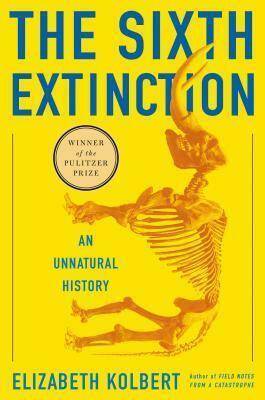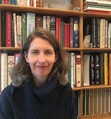Worldview Shapers: The Sixth Extinction
This week’s Nonfiction November topic is hosted by Rebekah of She Seeks Nonfiction.
One of the greatest things about reading nonfiction is learning all kinds of things about our world which you never would have known without it. There’s the intriguing, the beautiful, the appalling, and the profound. What nonfiction book or books have impacted the way you see the world in a powerful way? Is there one book that made you rethink everything? Do you think there is a book that should be required reading for everyone?
I’m using this opportunity to re-post a review that I originally wrote for the Ruminate Magazine blog. That publication is now sadly defunct, so I want to give my review a home on the internet. And the subject is eminently suitable for this topic: The Sixth Extinction, a book that changed how I view history, evolution, science, humanity, and our future. If you haven’t yet read it, I hope you will.
What have been your worldview-shaping books? I’d love to know.

It took me three years to work up to reading Elizabeth Kolbert’s book The Sixth Extinction: An Unnatural History; I started reading it once and then returned it to the library after a few pages, unable to face the apocalypse quite yet. But in the final days of December I did manage to finish this account of how life on earth, having gone through five previous periods of mass extinction, is now in the midst of a sixth — one that we ourselves may not survive.
It’s a fascinating, riveting and deeply disturbing story, which ends with little doubt that within a few generations we will see the collapse of our ecosystem as we know it. This is due not just to the euphemistically named “climate change,” but to the accompanying acidification of the oceans, the proliferation of invasive species, the transport of deadly fungi to unresistant populations, and many other factors. The problem is not so much that the environment is changing, but that it’s changing too fast for evolution to keep up. And the agent of this precipitous, unprecedented change, it’s clear, is us.
Kolbert traces this history through thirteen chapters, each focusing on a different species that faced or is now facing extinction: the golden frog, the rhinoceros, the Neanderthal. In a clear, compelling narrative style, she points to different aspects of the great panorama of evolution and the particular slice we’re experiencing now. As we journey with her around the world, we may feel wonder at the amazing web of life, even as we are struck by sorrow at the march of death. In a terrible irony, it’s only at this moment in history that we are able to begin to fully understand what it is that we are killing off.
Along the way, she also reveals some surprising and illuminating information about science and the way it works. The very idea of mass extinction is fairly new, and was hotly contested until the evidence became too overwhelming to ignore. That story about how the dinosaurs died off when an asteroid hit the earth — enshrined in textbooks as it now is, it’s easy to forget that not long ago it was considered a wildly improbable theory. The popular image of Neanderthals is a fantasy spun out of a few fragments of bone, and the most modern DNA research can only provide more tantalizing but incomplete pieces of the puzzle. In science, as in life, the game keeps changing, and those who don’t keep up with it will be left behind.
For me, this was one of the most important things about Kolbert’s approach. A non-scientist herself, she helps us to understand and participate in the creative process that is true scientific investigation, and that regrettably tends to become deadened into a mindless recital of unquestioned assumptions. The reality is much more exciting and difficult to grasp than that, and I came away with an admiration and appreciation for the scientists who are working tirelessly on such questions as what exactly will happen as the pH of the ocean is lowered by the absorption of carbon dioxide, even as I was dismayed by their conclusions. They are dancing on the edge of the precipice we all unthinkingly walk, and we need to wake up and embody more of that investigative spirit ourselves.
At the moment, the assumption to question is that we humans have a right to be on earth and that it will indefinitely support us. When the very ground is taken from beneath our feet, where can we stand? What is left to us, when the familiar forms of our physical existence are taken away?
Nothing, perhaps—yet I wonder. Kolbert concludes her book with the observation that as we became symbol-making animals, humans gained the ability to change the world, and therefore to destroy it. She doesn’t go on to the next step, which would note that out of all creatures on earth, this also means that we alone have the ability to change ourselves. No animal, no plant, no stone can distance itself from the world in which it is embedded in order to become self-observant, self-reflective, and self-transforming.
This separating out of the individual self is a kind of death, and spreads death into the outer world when unaccompanied by love, empathy, and compassion. Right now, the death-dealing forces seem to have the upper hand, and yet anyone who has ever experienced one iota of the power of love knows that it is stronger. Therein lies the paradox of being human: we bear both potentials in ourselves, and only by fully penetrating this mystery can we become self-creative.
Humans alone have this astonishing ability: to die and become. How, in the coming decades and centuries, will we make use of it? Only the unborn selves of our future evolution can say.
The Sixth Extinction: An Unnatural History by Elizabeth Kolbert (Henry Holt and Co., 2014)



